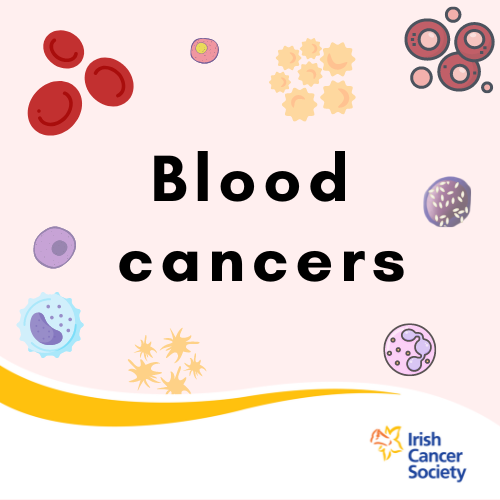Myelodysplastic syndromes (MDS) is a rare type of blood cancer sometimes referred to as bone marrow failure. In MDS, your bone marrow makes a large amount of abnormal cells, so you don’t have enough healthy blood cells in your bloodstream.
Blood cancers
Blood cancers affect blood cells. For example, leukaemia (white blood cells), lymphoma (lymphocyte cells) and myeloma (plasma cells).
About blood cancers
There are a number of different blood cancers that affect different types of blood cells. There are 3 main types of blood cells:
- Red blood cells (which carry oxygen)
- Platelets (which help blood to clot)
- White blood cells (which fight infection)
With blood cancers, normal blood cell development is affected by the uncontrolled growth of an abnormal kind of blood cell. These cancerous cells stop your blood from performing the functions it's supposed to do, like fighting infections or clotting your blood when you're cut.
Leukaemia
Leukaemia is cancer of your white blood cells and bone marrow. Bone marrow is the place where blood cells are made in your body. With leukaemia, immature blood cells divide quickly and do not grow into mature cells. These immature cells crowd your bone marrow and prevent it from making normal healthy cells.
Find out about the main types of leukaemia
Lymphoma
Lymphoma is cancer of the lymphatic system. Generally, lymphoma cells grow in lymph glands (nodes). This causes the glands to get bigger or swell.
There are two types of lymphoma: Hodgkin lymphoma and non-Hodgkin lymphoma. Most lymphomas are non-Hodgkin lymphomas.
Find out about the main types of lymphoma
Multiple myeloma
Myeloma is a cancer of the plasma cells in the bone marrow. Normally, plasma cells make proteins called antibodies (immunoglobulins) to fight infection and help build up immunity to disease.
Find out about multiple myeloma
Myelodysplastic syndromes (MDS)
Find out about MDS
Talk to a Cancer Nurse

Support Line
Our Daffodil Centres


